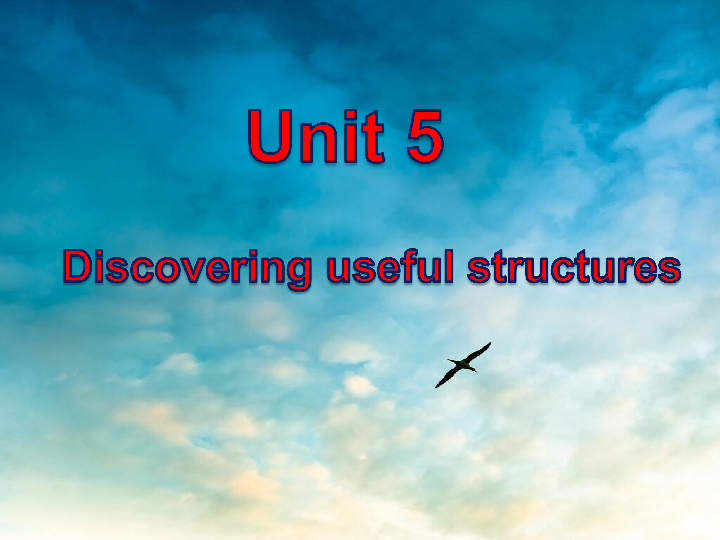(
课件网) 1. Looking carefully at the ground, I made my way to the edge of the crater. 2. Having experienced quite a few earthquakes in Hawaii already, I didn’t take my notice. Examine the sentences below and tell the similarity and difference between these two sentences. In the first sentence, the two actions are happening at the same time; whereas in the second sentence, experiencing quite a few earthquakes happened before took my notice. 1. Having collected and evaluated the information, I help other scientists … 2. Having worked hard all day, I went to bed early. 3. Having earlier collected special clothes from the observatory, we put them on before … 4. Having studied volcanoes now for many years, I am still … More sentences in the reading passage. 分词作状语,表示时间、原因、条件、让步状语时,分别等于被省略的状语从句或并列谓语结构。作状语在句首时,有时可以和when, unless, once, while, if, though 等连词连用。现在分词作状语,与句子主语存在主动关系。 The v–ing form as an adverbial v-ing 作状语时表示的动作是主语动作的一部分,与谓语表示的动作或状态同时或几乎同时发生的,或是先于谓语动词发生,它的逻辑主语与句子的主语一致。v-ing 作状语常表示时间、条件、原因、方式、伴随、让步、结果,多用逗号跟句子其他成分隔开。 I felt tired. I went to bed early. I had worked hard all day. I went to bed early. Feeling tired, I went to bed early. Having worked hard all day, I went to bed early. 作时间状语 Walking along the street, I met Mary. (= While I was walking along the street, …) Hearing the news, they all jumped with joy. 作原因状语 Being tired, I stopped to take a rest. (= Because I was tired, …) Not knowing her address, we couldn’t get in touch with her. 作条件状语 Turning to the left, you will find the school. (= If you turn the left, …) If you work hard, you’ll succeed. = Working hard, you’ll succeed. 作让步状语 Working hard as he did, he was still unable to support the whole family. Knowing where I live, he never comes to see me. = Though he knows where I live, he never comes to see me. 作伴随状语 I stood there, waiting for her. (=…, and waited for her.) Following Mike, they started to climb. The children laughed and talked merrily, and they ran out of the room. The children ran out of the room, laughing and talking merrily. 当动词-ing形式表示的动作和句子谓语动词表示的动作同时发生时用一般式;在句子谓语动词表示的动作之前发生时用完成式。如: Seeing the stranger coming towards him,little Jim ran away as fast as he could. (see和ran几乎同时发生) Having studied English for three years, he can read brief stories in English. (study发生在read之前) 动词-ing形式作状语的时态 动词-ing 的完成式,即: having +P.P(过去分词)…, 主语+谓语 1. After she had finished her work, she went home. 2. As we have invited him here to speak, we’d better go to his lecture. Having finished her work, she went home. Having invited him here to speak, we’d better go to his lecture. 当句子的主语执行动词-ing形式表示的动作时 ... ...

